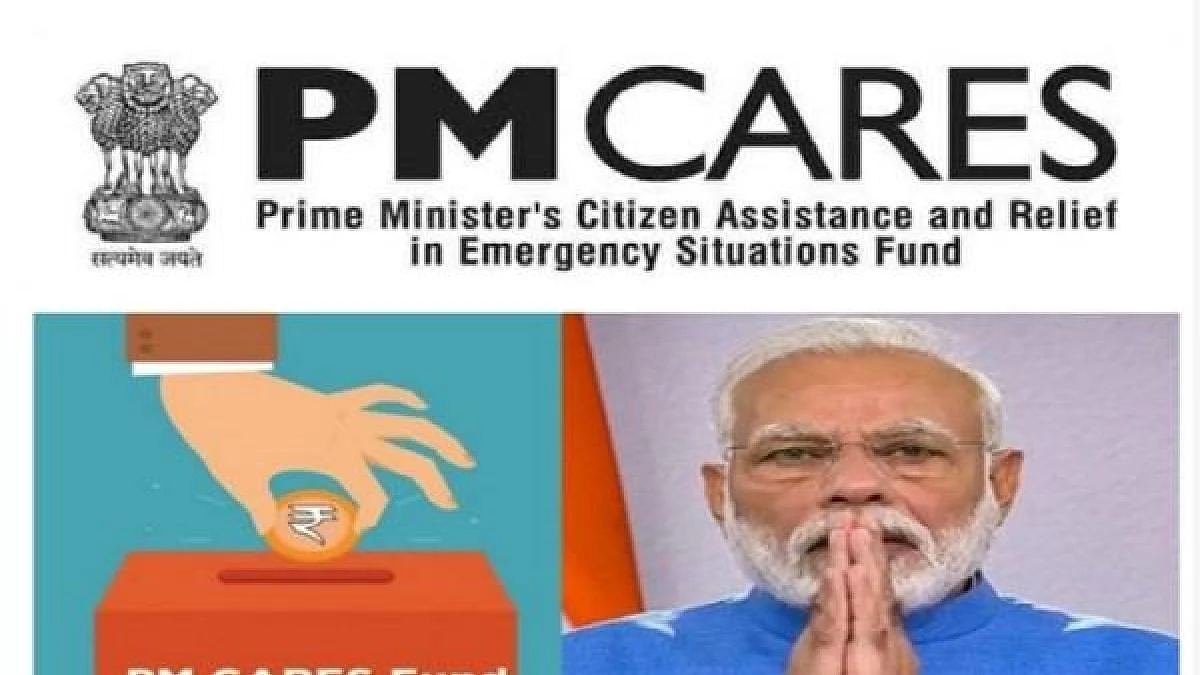What does the Prime Minister’s Office have to hide, that it rejects RTI on specious grounds?
PMO’s refusal to share information about PM CARES Fund and rationale behind the lockdown in response to an RTI on contentious grounds only fuels speculation about why all this can’t be made public

The Prime Minister’s Office (PMO) has refused to make public documents related to the PM-CARES Fund, ostensibly set up to receive financial aid from the public to fight the COVID-19 pandemic.
The PMO also refused to share details of high-level meetings on COVID-19 including the rationale behind the decision to implement the lockdown, besides the correspondence between the Ministry of Health and the PMO in this regard, and files related to COVID-19 testing, in response to an RTI.
The RTI filed by Vikrant Tongad, founder of Social Action for Forest & Environment (SAFE) on April 21 was disposed of within 6 days by the PMO.
The PMO refused to share the information by citing a 2009 decision of the Central Information Commission (CIC), which was later upturned, and a controversial statement made by the Supreme Court in 2011.
First objection by the PMO
In 2007, one Rajendra Singh, filed an RTI with the CBI seeking information on 69 points. He was told to deposit Rs 10 per question, as information sought was related to varied subjects. Dissatisfied, Singh filed a first appeal, which was dismissed.
The matter reached chief information commissioner Wajahat Habibullah, who concluded that only one question was related to a different subject. It is noteworthy that contrary to the PMO’s argument, the CIC did not restrain concerned departments from furnishing information, but to provide it after payment of additional Rs 10.
Habibullah had also observed, “We concede that a request may be comprised of a question with several clarificatory or supporting questions stemming from the information sought. Such an application will indeed be treated as a single request and charged for accordingly.”
Then, in 2011, then CIC Shailesh Gandhi observed that no ‘legal basis’ has been given in the verdicts which restricted the scope of the RTI application to only one subject or sought additional fees on multiple subjects. Overturning earlier rulings, he said that ‘a ‘single subject matter’ has neither been defined in the RTI Act, nor the rules and regulations framed thereunder.
Second argument: SC statement
In the second argument, the PMO wrote in its response to the RTI, “The applicants attention is also drawn to the honourable Supreme Court’s observation in decision dated 09.08.2011 (CBSE & others Vs Aditya Bandopadhyay and others), wherein following has been stated: Indiscriminate and impractical demands under RTI Act for disclosure of all and sundry information would be counter-productive as it will adversely affect the efficiency of the administration and result in the executive getting bogged down with the non-productive work of collecting and furnishing information.”
“The nation does not want a scenario where 75 percent of the staff of public authorities spends 75 percent of their time in collecting and furnishing information to applicants instead of discharging their regular duties,” it further added.
However, in its judgment, court had still directed the CBSE to allow inspection of answer-sheets and certified copies to the examinees under the RTI Act. Later, the SC directed the CBSE in 2016 to grant copies of answer sheets to students under RTI Act at not more than Rs 2 per page.
Talking to National Herald, Vikrant Tongad expressed disappointment with the PMO’s response. “The government should have on its own accord put information sought by me in the public domain. We all trust that it’s acting in public interest so far as the PM CARES Fund and decision about the lockdown etc is concerned, but putting it all out for everyone to access it would have further reinforced trust in the government.”
“I have already filed a First Appeal in the PMO. I have also broken up the questions and filed RTIs separately,” he added.
Noted RTI activist Anjali Bhardwaj concurred with the opinion expressed by Tongad. “The RTI Act has a provision for concerned authorities to proactively put such information in the public domain, and the government would have done well to quell any questions arising with regard to the PM CARES Fund by doing that,” she said.
She also rued the fact that due to vacancies in the CIC, Second Appeal hearings often get protracted and information was not supplied in a time bound manner as should be the case. “We had moved the Supreme Court in this regard, but the government just filed a status report that all vacancies stand filled, whereas as on date, there are four vacancies of Information Commissioners in the CIC,” she said.
Former CIC Shailesh Gandhi said that the statement attributed to Supreme Court was an off-the-cuff remark. “The statement was made without any legal basis. It was not needed at all. It does not suit the SC to make such statements regarding the fundamental rights of citizens,” he said. “Further, I believe that the PMO should not have made a reference to this statement in rejecting the RTI in question,” he said.
He added that an analysis of 17 verdicts of the Supreme Court on the RTI Act had completely rejected this statement. “We found that only 3.2% of the staff need to work for 3.2% of the time while responding to RTI applications,” he said.
Follow us on: Facebook, Twitter, Google News, Instagram
Join our official telegram channel (@nationalherald) and stay updated with the latest headlines
